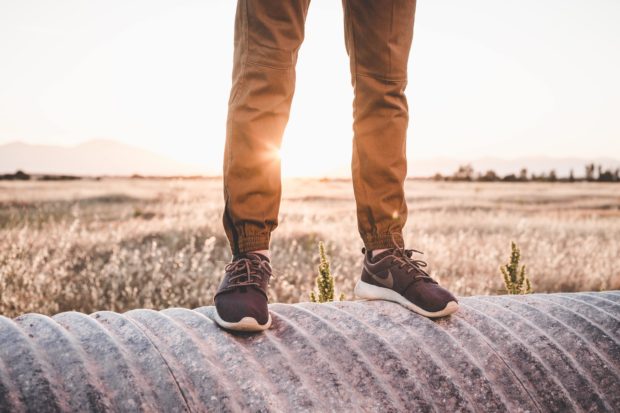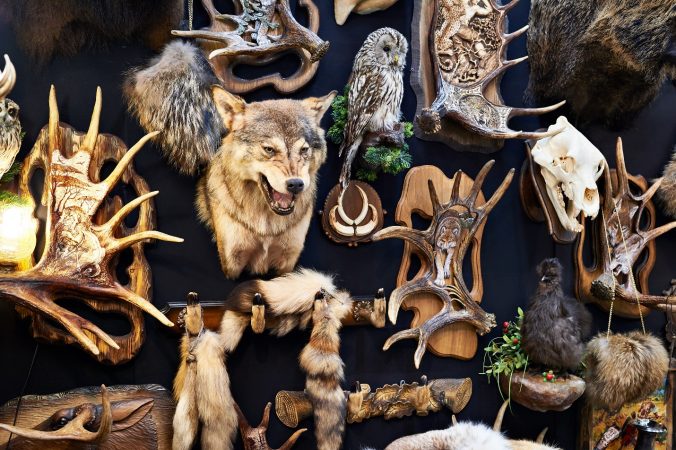You have no items in your cart. Want to get some nice things?
Go shopping
Sweatpants are not going to save us.
As our year of lockdown living draws to an end, there is a groundswell of opinion that terry towel trousers might stick around post-pandemic, becoming as acceptable to wear on the street as on the sofa.
And it is thrilling, is it not, to imagine a soft, cosy future in which we are no longer enslaved to ever-changing trends and subject to the tyranny of buttons? Wearing an item once dismissed by acerbic Chanel designer Karl Lagerfeld as “a sign of defeat” and condemned by Eva Mendes as the number one cause of divorce in America feels transgressive and progressive, as the best fashion should.
The fashion press is volubly pro-sweatpant. Harper’s Bazaar has declared sweatpants, sneakers and a long coat “the unofficial uniform of Winter 2021”, while Cosmopolitan suggests office workers returning to workplaces will wear joggers as a reflection of a new brand of corporate ambition – “getting through each day with our sanity intact, style be damned!” Even Vogue’s impeccably turned-out editor, Anna Wintour, has been photographed wearing sweats at home.
It is very tempting to imagine the sweatpant might be the great leveller, the Coca-Cola of clothing, a utilitarian uniform accessible to all. But that’s about as likely as Covid-19 being the “great equaliser” Madonna claimed it might be in March last year, when we ended 2020 with ten of the world’s richest people having grown their fortunes by more than $400 billion, while millions of ordinary workers struggled to put food on the table.
And work is at the heart of the sweatpants story. We wear joggers for comfort, sure, but also because of what they symbolise. GQ’s Rachel Tashjian posits that sweatpants have replaced jeans as the ultimate American clothing as traditional cowboy dreams have give way to fantasies “about leisure—about not working”.
And that’s just the thing. Leisurewear can be worn by everyone, but not equally. The current hype about sweatpants forgets that while some white collar workers might get away with office-friendly joggers on the job, those in lower-paying work are often mandated to wear uniforms or expected to follow strict dress codes.
Wearing sweatpants for social occasions or to engage in non-manual labour is the reserve of those who already possess sufficient social status that it will not be diluted by casual attire.
This privilege is why Paris Hilton could spend the early 2000s slouching around LA in Juicy Couture tracksuits and still secure tabloid front-pages, just as today Jay-Z can seal a business deal in Grace Wales Bonner joggers. And it’s why singer Jess Glynne took to social media in outrage when an exclusive London restaurant turned her away for her casual attire, while you or I might at least have worn jeans to try to secure a table at Sexy Fish.
Not only that, but not every sweatpant is the same. The New Yorker drily documented the gradations of sweatpants status with a humorous column claiming “These Aren’t Sweatpants, They’re Joggers”, and as sweatpants become ubiquitous they will also continue to evolve as status symbols, working to send out microcues about the wearer’s social position. Some of these hints may be subtle (material, cut, colour); others will be less coy (see Gucci’s logo-emblazoned “lounge pants” currently retailing for over $1,000).
A recent podcast from The Atlantic explored sweatpants as “a void”, a way of opting out of the self-projection inherent in getting dressed fuelled by our lockdown habit of prioritising comfort over cool.
But once we’re back out in the world, sweatpants, like everything we wear, will once again bristle with fashionable meaning and social codes. Fashion is an ever-regenerating system, adapting and thriving in new circumstances, making itself relevant to fresh realities. Even fleece-lined ones.
You might be done with fashion, but fashion is never done with you.

About Clare Kane
Clare is a fashion writer and novelist based in London, and is particularly interested in the social, cultural and historical reasons behind why we wear what we wear. She is the author of Chinese historical fiction novels Dragons In Shallow Waters and Electric Shadows of Shanghai.




